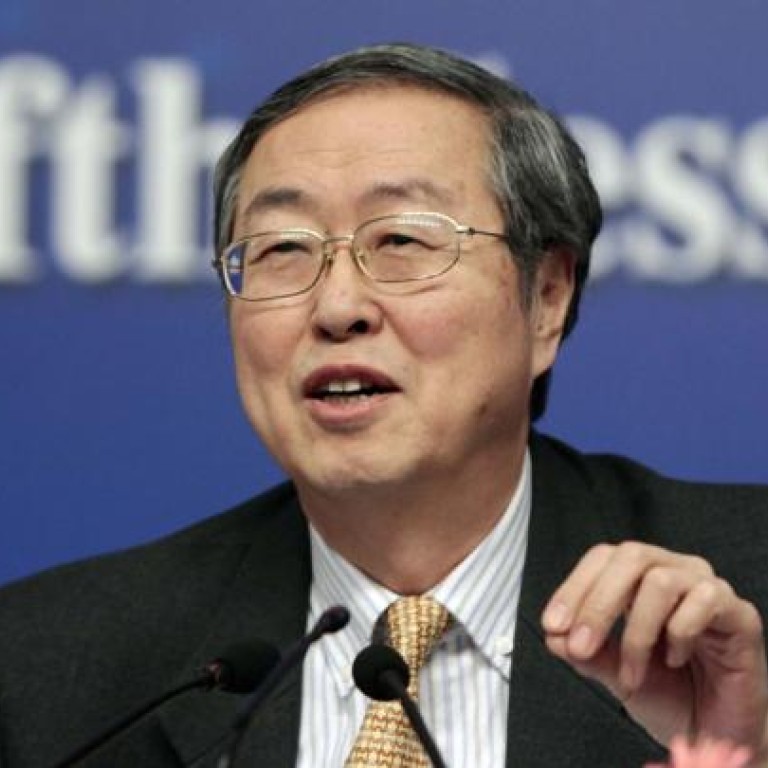
Princelings' hands seen in plans to retain elderly bank chiefs
Trio's parentage, not just financial competence, seen as factor in keeping them past retirement age
Beijing's plan to keep several top bankers at their posts past the normal retirement age suggests the princelings faction is still exerting a strong influence on the Communist Party's economic and political decision-making, observers say.
Sources have told the that People's Bank of China (PBOC) governor Zhou Xiaochuan, 65, will stay at his post for another year or two. Meanwhile, Chen Yuan, the 68-year-old chairman of China Development Bank (CDB), and Li Ruogu, the 62-year-old chairman of Export-Import Bank of China (Exim Bank), will retain their respective posts at China's two largest policy-oriented lenders.
Zhou is widely tipped to step down next month as he reached the retirement age of 65 last month and was omitted from the party's inner circle, the Central Committee, last year, while Chen's retirement has been deferred for the second time since 2011.
Sources say the plans are subject to approval at the annual meeting of the National People's Congress next month.
There should be plenty of economic reasons to keep the officials at their posts.
The new leadership is keen to maintain financial stability and bolster market confidence, as the challenges facing China are much more complex than before: economic growth has slid from double-digit rates to less than 8 per cent; the workforce is shrinking; exports are cooling; and the Western world has yet to pull out of a protracted economic downturn.
But some analysts say there are also more political considerations weighing on the decision.
Apart from their advanced age, rich experience and success in running financial institutions, Zhou, Chen and Li also share close links to the older generation of Chinese leaders.
Without the background as offspring of party leaders, Zhou and Chen would be unlikely to stay for so long
"Without the background as offspring of party leaders, Zhou and Chen would be unlikely to stay for so long," said Chen Ziming , a Beijing-based independent political commentator. Chen's late father, Chen Yun , was the top economic planner during the Mao Zedong era. Like Xi Zhongxun , the father of Communist Party general secretary Xi Jinping , he was one of the party's revolutionary veterans and founding fathers.
Zhou is the son of former machinery industry minister Zhou Jiannan, who is believed to have close links to former president Jiang Zemin , while Li's father-in-law, Xiao Hua , was a senior military general.
Domestic and foreign analysts all emphasised Chen's strong networks and his crucial role at CDB, which had 7.4 trillion yuan (HK$9.3 trillion) worth of assets at the end of last year, equivalent to about a seventh of the mainland's gross domestic product.
A bank analyst with a foreign institution said: "Chen is a figure never bound by common rules. With his help, the bank has obtained many special approvals and set many precedents."
For example, while CDB turned itself into a commercial bank in 2008, its core business remains policy lending and its bonds still enjoy sovereign debt ratings, the analyst says.
Since Chen took over as head of CDB in 1999, the bank has financed the mainland's largest infrastructure projects and many high-profile overseas strategic investments, such as extending loans to fund oil and natural gas imports.

